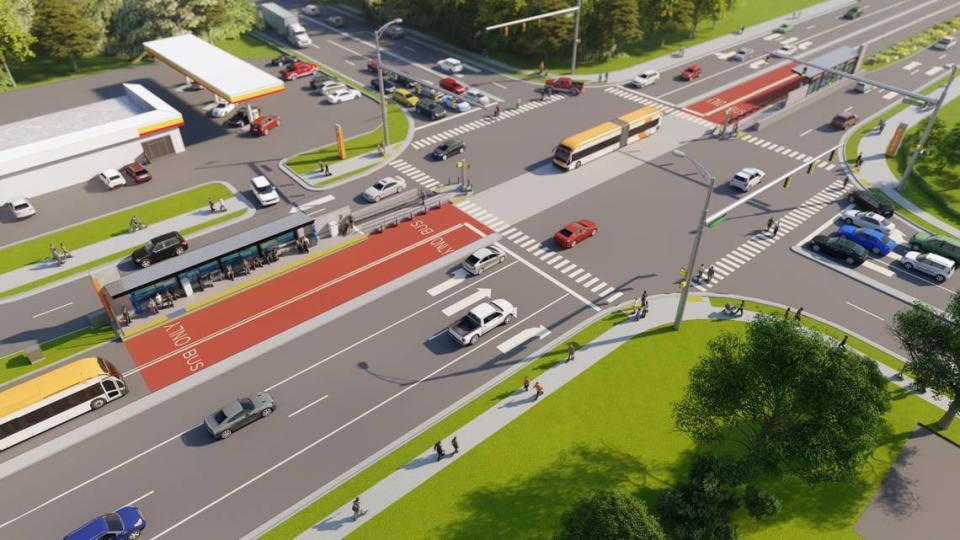Feds give more money to Raleigh bus transit project; city begins acquiring right-of-way
As Raleigh begins the process of acquiring property for the New Bern Avenue bus rapid transit line, the project has received more financial support from the federal government.
The city will receive another $5.4 million to help build its first BRT line starting next year. The money comes from the American Rescue Plan Act, the $1.9 trillion coronavirus recovery bill passed by Congress and signed by President Biden on March 11.
The latest award, one of 22 transit grants nationwide announced by Transportation Secretary Pete Buttigieg on Friday, comes on top of $35 million the Federal Transit Administration pledged to the New Bern Avenue project in December. The added federal support could help the city cover rising materials prices and other construction costs as work gets underway next summer, said David Eatman, the city’s transit administrator.
“As of this time, we don’t know exactly how we would use that, because we don’t have final engineers’ estimates and bids,” Eatman said in an interview. “But certainly we will make sure those funds are used wisely for the New Bern Avenue BRT project, and we’re very appreciative.”
The BRT system will include raised, covered stations where riders will buy their tickets before boarding as well as priority signals at intersections and 3.3 miles of dedicated lanes to help buses avoid getting slowed by traffic. The New Bern Avenue line will run 5.1 miles altogether, from GoRaleigh station downtown east to near New Hope Road.
The city estimates the New Bern line will cost $76.5 million to build, including design and right-of-way. Nearly all of the cost not covered by federal grants will come from the Wake County transit tax, a half-cent sales tax approved by voters in 2016.
The City Council voted Tuesday to authorize the city to use eminent domain if necessary to acquire property to build the BRT line. The city expects to need only portions of lots along the street and not entire homes or businesses, Kenneth Ritchie, the city’s Roadway Design and Construction Manager, told council members.
The city will begin by acquiring land and easements for utility work associated with the project, Eatman said, and won’t begin buying property for the transit line itself until early next year. There are more than 150 affected parcels along the corridor.
Construction is expected to take two years, with service starting in the summer of 2024.
Raleigh plans to use the construction of the bus route to replace or repair 10,000 feet of sewer pipes and 11,600 feet of water pipes. The estimated cost to repair and replace some of the oldest pipes in the city is $6.1 million.
The New Bern Avenue line is the first of four BRT routes the city plans to build, each radiating out from downtown. The second would begin along Western Boulevard and extend to downtown Cary. The city is in the early stages of designing that line, and no construction date has been set.


